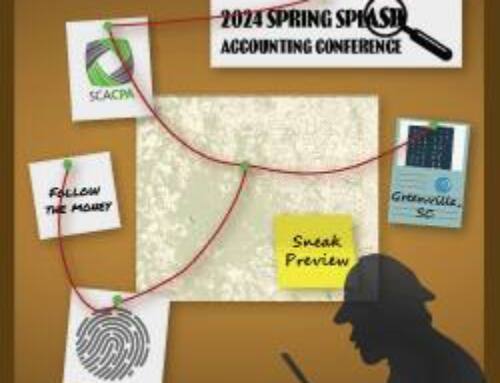Provided by Copper Dome Strategies, LLC
Judicial elections were held on Wednesday. There were numerous subcommittee and committee meetings as the clock is beginning to wind down on the session. Only three weeks remain in the legislative session.
Artificial Intelligence
The House Artificial Intelligence (AI) Ad Hoc Committee met again yesterday. The committee heard presentations from Presidio and ZeroEyes. Presidio focused on innovation with governance and delivery of AI as a product. While addressing the increase of ransomware, they noted that the public education sector ranked first in industry sectors for ransomware attacks, and higher education ranked second. Top cyber industry experts are expecting an attack of some kind on the 2024 summer Olympics. ZeroEyes focused their presentation on addressing school safety issues using technology.
The committee, led by Representative Jeff Bradley (R-Beaufort), will continue to study Artificial Intelligence (AI), cybercrime and cybersecurity in recognition of the increasing significance of AI technology and the need to ensure the protection and welfare of South Carolina citizens in an evolving technological landscape. Video archives of the meeting can be found here.
Budget
The Senate will begin floor debate next week on the FY2024-25 General Appropriations bill H. 5100 and the Capital Reserve Fund bill H. 5101. The budget was adopted by the Senate Finance Committee last week. Yesterday, Senate budget subcommittee chairs briefed the full Senate on the committee plan. House and Senate leaders have informed their bodies that the budget will not be completed by the May 9 adjournment date and they are tentatively planning to return June 18-20 to adopt a Conference Report on the state budget. They would return again June 26-28 to address gubernatorial vetoes.
Video archives of the meetings can be found here.
Individual state agency budget requests can be found here.
Childcare
On Tuesday, the House Education K-12 Subcommittee adopted S. 862 (Senator Shealy), which provides for educational and pre-service training requirements for childcare workers. The subcommittee also adopted S. 946 (Senator Shealy), which changes the organization of the State Advisory Committee on the Regulation of Childcare Facilities. Both bills now go to the full Education Committee for consideration.
Yesterday, the Joint Citizens and Legislative Committee on Children met and received a briefing on state and district-level public preschool suspension and expulsion data from the 2016 through 2023 school years.
Healthcare
The House Judiciary Constitutional Laws Subcommittee adopted S. 915 (Senators Peeler, Alexander, Setzler, Verdin, Davis and others) on Tuesday, which would merge the current Departments of Health and Human Services, Mental Health, Disabilities and Special Needs, Alcohol and Other Drug Abuse Services and Aging into one agency. The bill was drafted following recommendations from a study commissioned as part of Act 60, adopted last year, which restructured the Department of Health and Environmental Control (DHEC). The legislation aims to align these behavioral health agencies to better serve the public. The House passed their version of restructuring earlier in the session. The bill now goes to the full Judiciary Committee for consideration.
On Wednesday, the Medical and Health Affairs Subcommittee of the House Medical, Military, Public and Municipal Affairs Committee adopted S. 858 (Senator Davis), which exempts Acute Hospital Care At Home from the requirements of Certificate of Need (CON) and requires the Department of Health and Environmental Control (DHEC) to promulgate regulations. The bill was amended to remove an amendment added by the Senate that would exempt home health agencies from the requirements of CON. As a result of removing the Senate amendment, home health agencies will continue to be required to obtain a CON.
The subcommittee also approved S. 1074 (Senator Davis), which changes the requirements of a Certified Medical Assistant (CMA) and allows for the delegation of certain nursing tasks pursuant to the physician assistant’s scope of service. The bill would also define what medical services an Unlicensed Assistant Personnel (UAP) can perform. Both bills now go to the full committee for consideration.
Higher Education
On Tuesday, the Higher Education Subcommittee of the House Education and Public Works Committee adopted, as amended, S. 125 (Senators Hembree, Turner and Young), which would extend LIFE scholarships to education majors. The bill was amended to include accounting majors. The bill now goes to the full committee for consideration.
Yesterday, the Higher Education Subcommittee of the House Education and Public Works Committee adopted S. 974 (Senator Bennett), which would add institutions accredited by the Accrediting Commission of Career Schools and Colleges to the definition of “Public or Independent Institutions” for the purposes of the Palmetto Fellows, SC HOPE and LIFE scholarships. The bill now goes to the full committee for consideration.
Later that afternoon, the Higher Education Subcommittee of the House Ways and Means Committee debated but took no action on S. 314 (Senator Talley), which provides regulatory relief for certain capital improvement projects. The bill raises threshold amounts and exempts certain projects from state oversight. Subcommittee Chairman Nathan Ballentine (R-Lexington) told the subcommittee they plan to meet again next week and could add an amendment to the bill, further reducing the regulatory compliance for public colleges and universities.
Yesterday, the Senate gave second reading approval to H. 4349 (Rep. Bannister), which revises the requirements of the Greenville Technical College Area Commission. The bill remains on the Senate calendar awaiting third and final reading.
This week, the House adopted S. 1047 (Senator Hutto), which requires the members of the Denmark Technical College Area Commission be appointed by the governor upon the recommendation of the majority of the members of the legislative delegation. The bill is now enrolled for ratification.
Legal/Judicial
The General Assembly met in Joint Session on Wednesday for judicial elections. The Honorable Jerry Deese Vinson, Jr. was elected to the Court of Appeals, Seat 8. In a contested race for the other open seat on the Court of Appeals, the Honorable Matthew Price Turner was elected on the third ballot. In an uncontested race for the Circuit Court, Fifth Judicial Circuit, the body voted to recommit the candidate to the Judicial Merit Selection Commission, denying the seat to James Smith, a former House member and gubernatorial candidate.
South Carolina is one of only two states where the legislature elects judges. A full list of those elected to seats on the Court of Appeals, Circuit Court and Family Court can be found here.
Tax
On Tuesday, the Senate Finance Committee adopted H. 4594 (Reps. Ballentine, Pope, Clyburn and West), known as “Tax Conformity.” The bill updates the reference to the Internal Revenue Code to the year 2023 for South Carolina income tax purposes. The committee also adopted H. 4087 (Reps. G. M. Smith, West, Kirby, Ballentine and others) on Tuesday, which amends current law relating to corporate income tax credits and recycling facility tax credits. Both bills now go to the full Senate for consideration.
On Wednesday, the House Ways and Means Sales, Use and Income Tax Legislative Subcommittee adopted S. 577 (Senator Alexander), which updates a reference to the top marginal income tax rate. The subcommittee also adopted S. 969 (Senators Alexander and Peeler), which would increase the subsistence deduction amount for certain law enforcement and firefighters, and increase the volunteer exemption amount. Both bills now go to the full committee for consideration.
Utilities
On Wednesday, a Senate Judiciary Subcommittee took testimony but did not take action on S. 909 (Senator Davis), relating to energy reform and reform of the Public Service Commission (PSC). Earlier in the day, Senate Majority Leader Shane Massey (R-Edgefield) told the Senate the bill is being rushed and could roll back expensive lessons learned after the failure with the V.C. Summer nuclear reactors. Massey suggested creating a study committee to work over the summer on the issue. Dramatic population and industrial growth, coupled with the lack of natural gas capacity that is available to the state, prompted lawmakers to develop a wide-ranging bill. Utility officials say the legislation is desperately needed to avoid rolling blackouts like the one that almost occurred on Christmas Eve 2022, when cold weather combined with problems at generating stations led to a demand that nearly topped the ability to generate electricity in South Carolina. A similar House bill H. 5118 (Reps. G.M. Smith, West, Davis and others) is currently on the Senate calendar but with an objection.
The Joint Bond Review Committee (JBRC) Fiscal Oversight Committee heard a report on the financial status of the South Carolina Public Service Authority (aka Santee Cooper) on Wednesday. President and CEO Jimmy Staton testified that 2023 was a very strong year financially. The state-owned utility generated $697 million on a net basis and covered all of its debt expenses. Staton said they did not have to borrow revenue as they did in 2022. Their debt remains flat at $7.4 billion. Staton said they will have to start spending revenue to increase capacity, but he did not expect that to occur this year. He said they would come back to JBRC seeking approval for $445 million for new capital expenditures and plan to provide greater detail to the committee soon.


